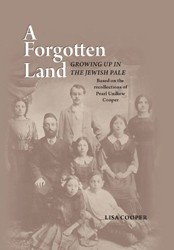Screening Room: Family Pictures is a memoir of Alan Lightman’s childhood growing up in the Jewish community in Memphis, Tennessee. It also tells the story of the author’s grandfather, M. A. Lightman. The domineering patriarch was a cinema owner who championed entertainment. The book is made up of Lightman’s present-day investigations in the hometown he left for more academic locales, and his wistful memories of the faded world of a close-knit family and community.
Describing the world that revolved around the Ridgeway Country Club, Lightman writes, “Everyone was Jewish, of course. The other social clubs in Memphis such as the Hunt and Polo Club, the Memphis Country Club, the University Club, and Chickasaw, strictly barred Jews from membership. In retaliation, the Jewish crowd stuck together and formed their own.” He describes Memphis as a place where marriage and interfaith dating were discouraged and where his coreligionists would gather under the “Jew tree” at the local high school because they were more comfortable among their own. One woman in the community sought out a mezuzah “that didn’t look too Jewish” because being Jewish was not something to flaunt.
Lightman does not shy away from the flaws of the characters. Screening Room also takes on the harsh realities of race relations in Memphis, detailing the key role and approach that Lightman’s grandfather took in breaking racial barriers — at least in his cinemas. The memoir, complete with family and historical photographs, is full of colorful characters full of contrasts. The author sees himself as an exile from that life, which he views as provincial but at the same time with a warm nostalgia. He journeys back to Memphis to revel in and pick apart those memories, often at funerals of family, and to find out who exactly his grandfather was as a formidable public figure, successful businessman, and domineering patriarch.
Dina Weinstein is a Richmond, Virginia-based writer.





